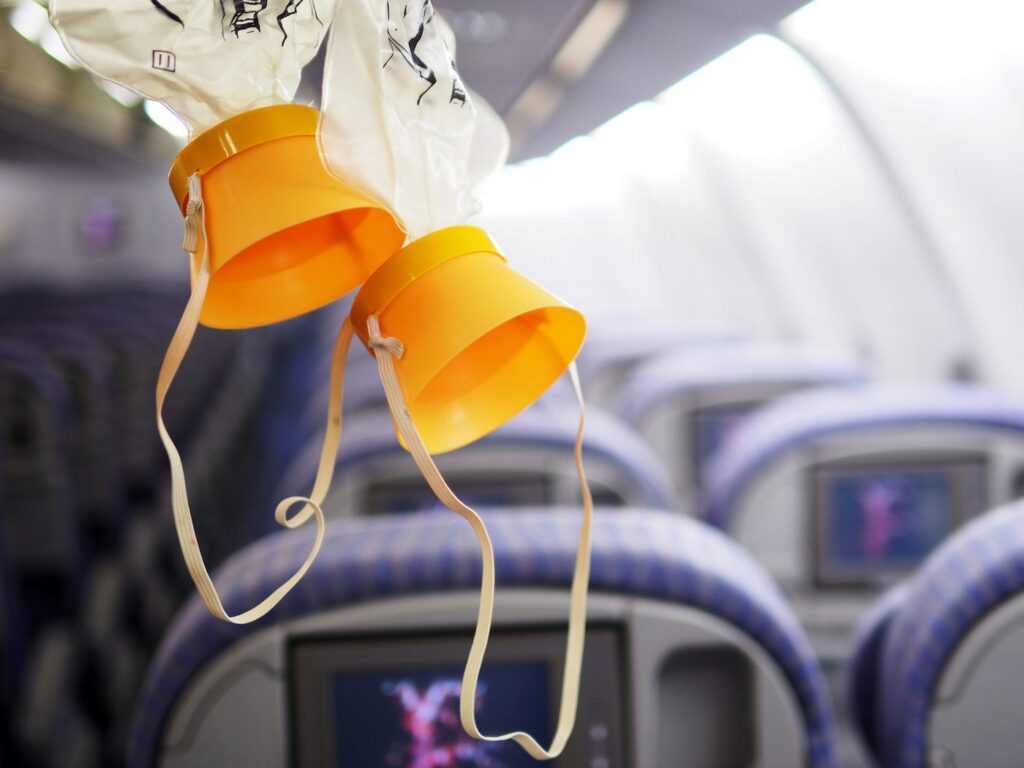It’s R U OK? Day but make sure you fit your own mask first
Today is R U OK? Day which is a fantastic initiative to encourage us to pause for a moment and ask the people around us – R U OK? This is a topic that I’ve written about before because I feel really strongly about playing a role in making mental health a priority for everyone including our healthcare workers and Government decision-makers.

The reason I’m writing about this topic within my cycling blog is that I know that cycling, and exercise in general, have so many positive benefits for mental health conditions. I’ve written about it several times before today so I’m not going to repeat myself, instead I’ll focus on how to care for friends and family who are suffering from mental illness by looking after yourself first.
A friend of mine, who herself suffers from a mental illness reminded me that one of the best things that close friends and family of mentally unwell people can do is to ‘fit your own mask first’. If you’re not in good mental shape you’re not going to be able to help others.
If you suffer from a mental illness and you’re reading this article and my other chirpy articles on this subject you may be thinking that I really don’t understand how it feels to have a mental illness and you’d be right. But I have seen how it affects family and friends up close and I do know how hard it is just to get out of bed and face the world. But I want you to know that I, and many others like me, really genuinely want to help and understand.
So here are a few tips I’ve picked up from my own experience and some research about looking after your mental health so you can support those around you:
Stop and reflect
Schedule time to reflect on your own wellbeing. Bring awareness to what you are experiencing and how you are feeling. Research suggests that self-awareness leads to better mental health outcomes, better decision making, enhanced self-confidence and improved job-related wellbeing.
I stop and reflect through journaling and yoga, and I also try to be present rather than constantly focusing on the future, or the past.
Be kind to yourself
This is my favourite departing line. I often say to my partner ‘Be kind to yourself’ when I say goodbye as he heads off to work.
Everyone struggles mentally at times, makes mistakes, needs breaks or time to grieve. Being kind to yourself and accepting your emotional state has mental health benefits such as greater happiness, life satisfaction, fewer emotional difficulties and less anxiety.
Reframe your thoughts
Think positively about future outcomes. This one is so pertinent right now during the COVID-19 pandemic. When we are going through tough times, we tend to think things will be permanent with the consequences will last forever.
Studies have shown that those who reframe their thinking to be more optimistic about situations experience better personal and professional outcomes and recover quicker from hardship. In Leigh Sales book Any Ordinary Day, she interviews Thredbo landslide survivor Stuart Diver about how his amazing ability to reframe his thinking enables him to get on with his life despite unimaginable tragedy.
Be vulnerable
R U OK Day is focused on starting a conversation and often sharing your uncomfortable thoughts and experiences with others. Being vulnerable not only helps you get things off your chest, but can inspire others to share their own uncomfortable thoughts and experiences.
Focus on quality relationships
Help people feel seen and heard. Positive social support makes us feel less lonely and is tied to greater psychological and physical wellness.
You can reap the benefits of a quality relationship by performing a small favour for someone, disclosing something about yourself, showing genuine interest in another person, or looking for commonalities between you and another.
Pay it forward
I love the concept of ‘Paying it Forward’ which says that you should do good deeds for others in response to a good deed that you receive. Performing an act of kindness for someone else without any expectation that the kindness will be returned, can help improve feelings of happiness, reduce stress and improve emotional wellbeing.
Re-evaluate your routine
Researchers have found that people who engage in routines experience a higher sense of purpose in life. You should focus on spending more time engaging in activities that provide you with meaning and happiness, or establish new habits.
As part of your routine, remember to also focus on your physical wellbeing. Sleep for a 7 to 9 hours per night, eat well and exercise. That’s when the cycling comes into it because it’s great for your mental health for the many reasons that I’ve written about before.
Sir Arthur Conan Doyle said it best when he wrote in an article in 1885 for Scientific American: “When the spirits are low, when the day appears dark, when work becomes monotonous, when hope hardly seems worth having, just mount a bicycle and go out for a spin down the road, without a thought on anything but the ride you are taking.”


Ooh I didn’t know Conan Doyle was a cyclist. Just adds to general awesomeness